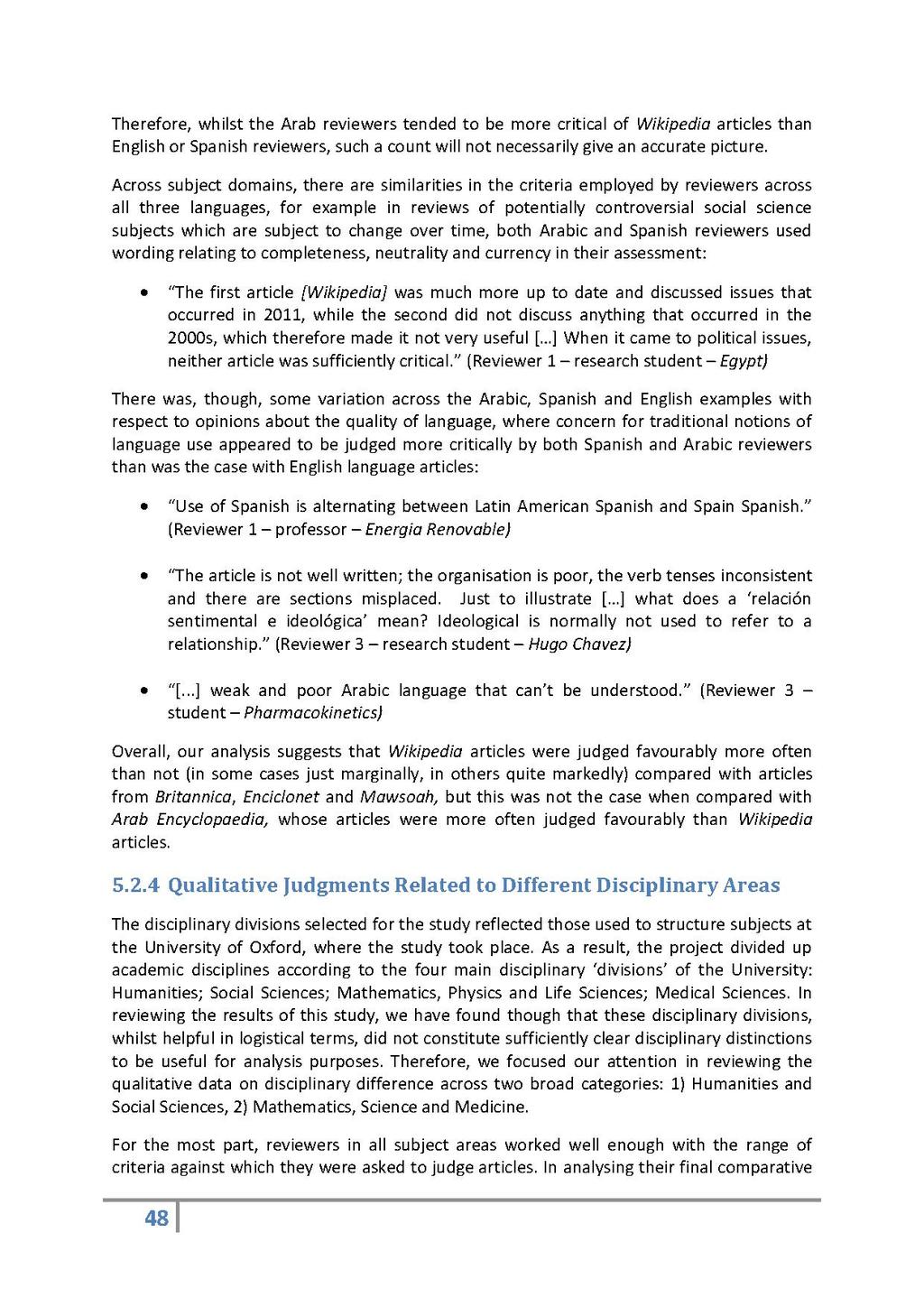Therefore, whilst the Arab reviewers tended to be more critical of Wikipedia articles than English or Spanish reviewers, such a count will not necessarily give an accurate picture.
Across subject domains, there are similarities in the criteria employed by reviewers across all three languages, for example in reviews of potentially controversial social science subjects which are subject to change over time, both Arabic and Spanish reviewers used wording relating to completeness, neutrality and currency in their assessment:
- "The first article [Wikipedia] was much more up to date and discussed issues that occurred in 2011, while the second did not discuss anything that occurred in the 2000s, which therefore made it not very useful [...] When it came to political issues, neither article was sufficiently critical." (Reviewer 1 – research student – Egypt)
There was, though, some variation across the Arabic, Spanish and English examples with respect to opinions about the quality of language, where concern for traditional notions of language use appeared to be judged more critically by both Spanish and Arabic reviewers than was the case with English language articles:
- "Use of Spanish is alternating between Latin American Spanish and Spain Spanish." (Reviewer 1 – professor – Energia Renovable)
- "The article is not well written; the organisation is poor, the verb tenses inconsistent and there are sections misplaced. Just to illustrate [...] what does a 'relación sentimental e ideológica' mean? Ideological is normally not used to refer to a relationship." (Reviewer 3 – research student – Hugo Chavez)
- "[...] weak and poor Arabic language that can't be understood." (Reviewer 3 – student – Pharmacokinetics)
Overall, our analysis suggests that Wikipedia articles were judged favourably more often than not (in some cases just marginally, in others quite markedly) compared with articles from Britannica, Enciclonet and Mawsoah, but this was not the case when compared with Arab Encyclopaedia, whose articles were more often judged favourably than Wikipedia articles.
5.2.4 Qualitative Judgments Related to Different Disciplinary Areas
The disciplinary divisions selected for the study reflected those used to structure subjects at the University of Oxford, where the study took place. As a result, the project divided up academic disciplines according to the four main disciplinary `divisions' of the University: Humanities; Social Sciences; Mathematics, Physics and Life Sciences; Medical Sciences. In reviewing the results of this study, we have found though that these disciplinary divisions, whilst helpful in logistical terms, did not constitute sufficiently clear disciplinary distinctions to be useful for analysis purposes. Therefore, we focused our attention in reviewing the qualitative data on disciplinary difference across two broad categories: 1) Humanities and Social Sciences, 2) Mathematics, Science and Medicine.
For the most part, reviewers in all subject areas worked well enough with the range of criteria against which they were asked to judge articles. In analysing their final comparative
48
